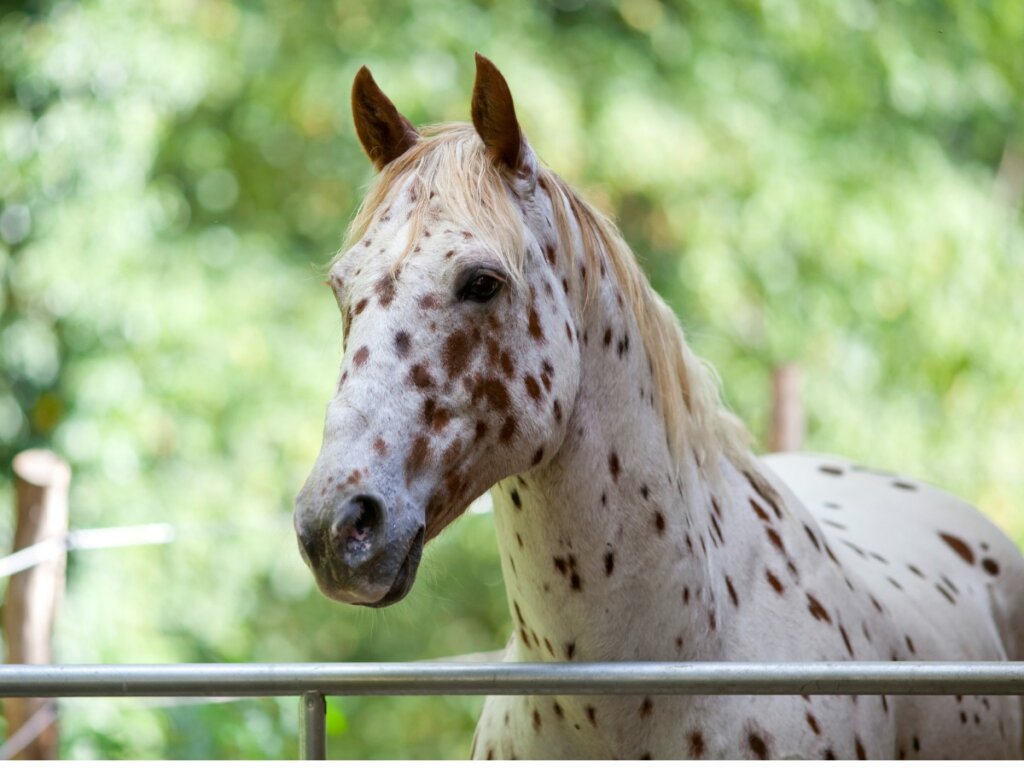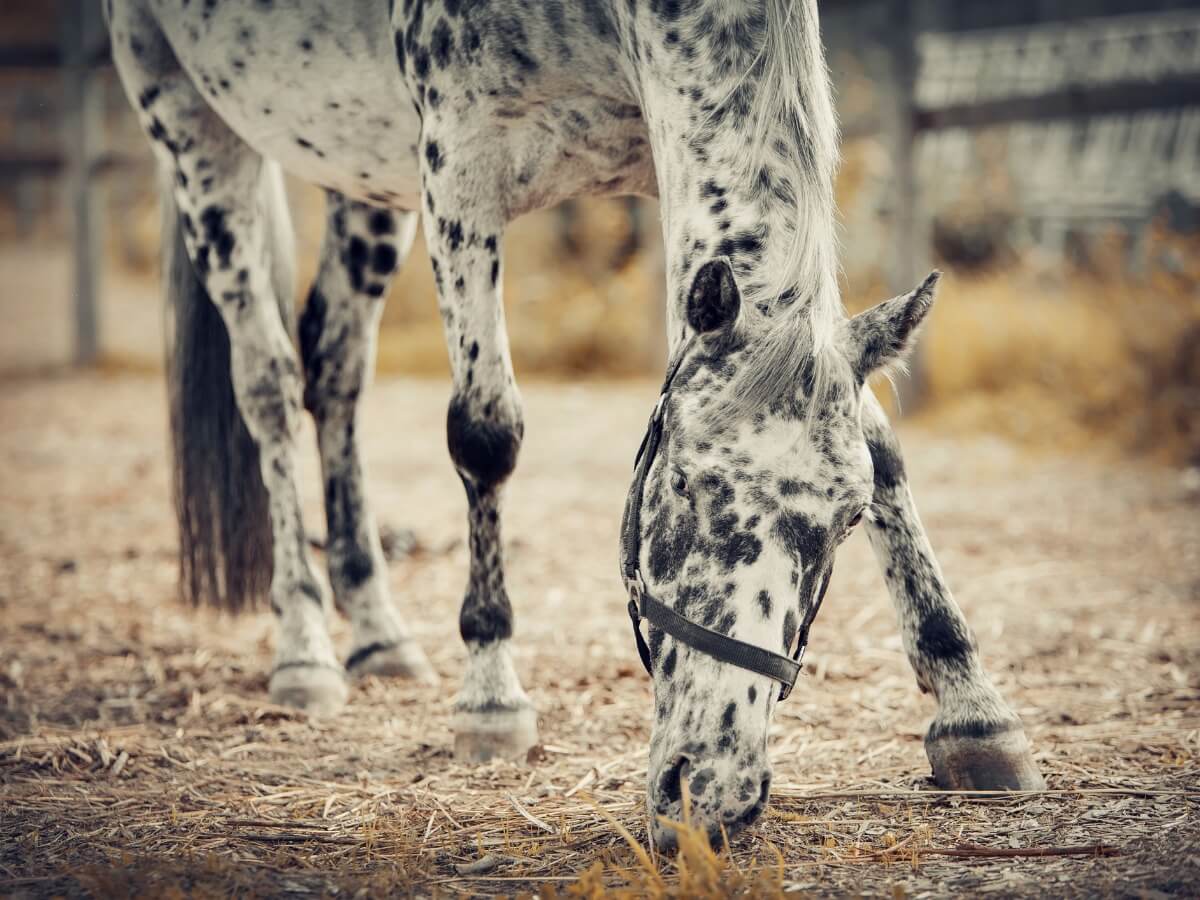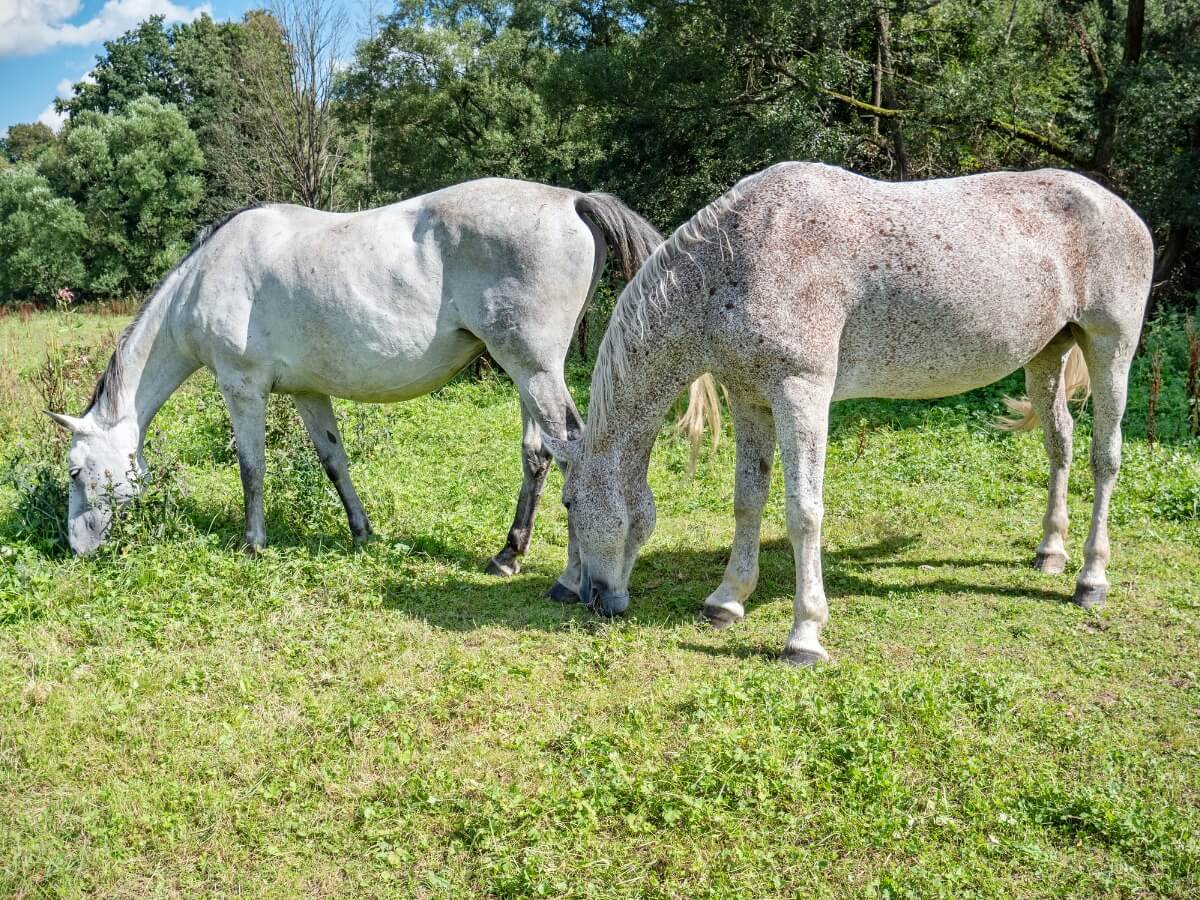The Appaloosa Horse: Origin and Characteristics

The Appaloosa horse is one of the most popular breeds, and not just because of its looks, although its speckled coat is well known to curious people in the equine world. Beyond its atypical tonality, the great resistance of this equid and its affable character are great qualities to take into account.
If you’re interested in knowing what other characteristics this wonderful spotted horse has, read on. You’ll also find basic tips for its care and good health.
Origin of the Appaloosa horse
Cave paintings from more than 20,000 years ago already show mottled horse figures similar to the Appaloosa. Although this doesn’t mean that it’s such an old breed, it does give certain clues that this mottling is part of a horse’s genetic makeup.
Experts believe that the most recent origin of this breed is the Spanish horse, which arrived in America with the invasion of the 16th century. These horses didn’t get their name until the Nez Perce Native American tribe named them in honor of the Palouse river.
Later on, this same tribe carried out genetic selection to turn the horses around them into their very own race. They used the horses for hunting and warfare for more than 200 years. They were so effective that, in 1876, the American government gave the order to kill all Appaloosa.
However, a small part of the population survived and was able to recover. Currently, the breed is preserved through the Appaloosa Horse Club breeding programs.

Physical characteristics
For a horse to be officially considered an Appaloosa breed, it must possess a number of characteristics. Among them, we can highlight the following:
- Mottled skin: Their fur has the appearance of freckled skin and there are no other official breeds that possess this coat. The spots are located in the mouth, around the eyes, and in the genital area.
- Sclera: The sclera of the Appaloosa is white and usually much more visible than in other breeds, as it can be seen without the need for the horse to open its eyes wide or look at the periphery of his vision.
- Striped heads: Many Appaloosa have well-defined light and dark vertical stripes on their heads.
These horses are medium-sized horses, 140 to 165 centimeters tall (4.6 – 5.4 feet). They have a muscular body and a rounded rump. The legs, despite appearing thin, are strong and resistant, as can be seen by their great agility.
Character
Appaloosa are active horses that like to move and expend energy. Their character is gentle — within the natural distrust of prey animals — and they’re easy to deal with. Like any other horse, this breed is very sensitive to the moods of others and is easily stressed by negative stimuli.
These equines establish strong and stable bonds with other horses and even with humans.
Appaloosa horse care
Appaloosa don’t have conditions linked to their breed, and so they just require the same basic care as any other horse:
- Good food and fresh water: It’s essential that the animal has good quality hay constantly available and is able to graze on the land where it lives. On the other hand, you should always have clean, fresh, water available.
- Leg care: Although robust, leg and hoof injuries are among the most disabling that horses can suffer. To avoid long-term wear and tear, daily hoof checks are necessary and the equid needs enough ground to move freely.
- Caring for the teeth: The teeth, as well as the rest of the digestive system, is the other delicate part of horses. All structures involved in chewing and digestion should also undergo regular checks to avoid overgrowth and other problems.
- Regular brushing and bathing to keep its coat healthy and shiny.
Appaloosa horse health
As mentioned above, Appaloosa have genetics that favor robustness and good health. They rarely get sick, except when they live in poor conditions for long periods of time.
That’s why you shouldn’t lower your guard in terms of their veterinary care and check-ups, as these equids aren’t immune to viral and bacterial diseases. Stool, urine, and blood samples of the analyzed specimen should also be taken at each check-up, in order to rule out parasites and other ailments that can’t be seen in a physical examination.
To avoid infections, the hygiene of the horse’s rest area and its terrain must be strict and frequent. Improper substrate and litter can lead to tread problems, infestations, and sepsis.

Horses are wonderful, empathetic, and beautiful beings. If you’re lucky enough to share your life with one, appaloosa or not, you’ll find that even their weaknesses bring out the best in you. Don’t miss out on the experience.
All cited sources were thoroughly reviewed by our team to ensure their quality, reliability, currency, and validity. The bibliography of this article was considered reliable and of academic or scientific accuracy.
- Appaloosaspot.com. (2021). APPALOOSA HORSE CLUB BREED STANDARDS. 30/06/2021, de Appaloosaspot.com Sitio web: https://www.appaloosaspot.com/aphc-breed-standards.html
- The Open Sanctuary Project, Inc. (s. f.). Horses | Compassionate Care. The Open Sanctuary Project. Recuperado 19 de julio de 2021, de https://opensanctuary.org/article-categories/horses/